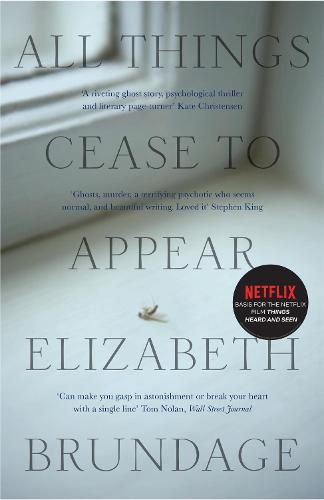All Things Cease to Appear by Elizabeth Brundage
Over the few days I read this book, I wouldn’t steal small moments to read a page when I could, but instead find a place to relish the act of reading with the same slow-burn intensity the book itself has: only on my own in a room, only when it was silent. But not when I was alone, and certainly not when I was alone in the house with my young daughter, because that’s how the story begins: a daughter asleep and the mother in bed upstairs with an axe in her head. Her husband comes home from work that night and finds them there. Who could kill his wife and leave his three-year-old daughter in the house all day with a dead body? Why would anyone kill Catherine Clare at all? We find out with a depth of character detail that feels almost luxurious to read, looking back into the years that led to that day in February of 1979, all the way back to the Hale family who lived in the farmhouse before them – back when it was a working farm – and to the bitter end of the Hale adults, whose three sons moved just down the road and watch Catherine and George Clare move into their home and make it their own. At least, to the extent that making it their own is possible in a house that has not forgotten what happened inside its main bedroom, and in a town that will always remember.
All Things Cease to Appear is not a traditional crime novel but a psychological narrative of the past and present inhabitants of the Hale Farm, and the townsfolk who come and stake their claims to the earth of their emotional landscapes. Every moment is heady and important and real, with a depth of character that is like literary caviar to read, vivid detail enough to make you put your fingers on the words to see if they come alive – each character’s then and now, the ways in which they are good, the times when they are bad, and when they see the world beautifully, like the artists Professor George Clare teaches his students about. Catherine’s murder is not the only crime, and this will not end how you expect it to, but it is a visceral, emotionally bruising treat all the same.



